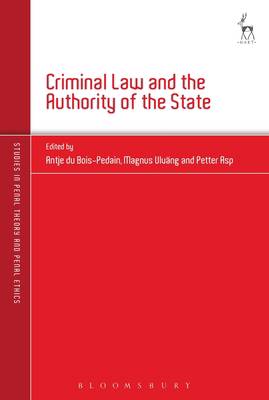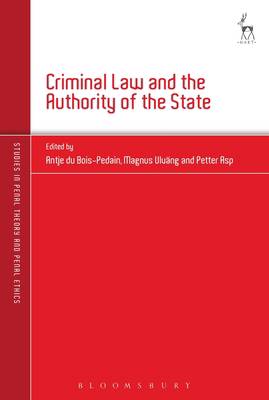
- Afhalen na 1 uur in een winkel met voorraad
- Gratis thuislevering in België vanaf € 30
- Ruim aanbod met 7 miljoen producten
- Afhalen na 1 uur in een winkel met voorraad
- Gratis thuislevering in België vanaf € 30
- Ruim aanbod met 7 miljoen producten
Zoeken
Criminal Law and the Authority of the State
€ 98,45
+ 196 punten
Omschrijving
How does the state, as a public authority, relate to those under its jurisdiction through the criminal law? Connecting the ways in which criminal lawyers, legal theorists, public lawyers and criminologists address questions of the criminal law's legitimacy, contributors to this collection explore issues such as criminal law-making and jurisdiction; the political-ethical underpinnings of legitimate criminal law enforcement; the offence of treason; the importance of doctrinal guidance in the application of criminal law; the interface between tort and crime; and the purposes and mechanisms of state punishment. Overall, the collection aims to enhance and deepen our understanding of criminal law by conceiving of the practices of criminal justice as explicitly and distinctly embedded in the project of liberal self-governance.
Specificaties
Betrokkenen
- Uitgeverij:
Inhoud
- Aantal bladzijden:
- 264
- Taal:
- Engels
- Reeks:
Eigenschappen
- Productcode (EAN):
- 9781509932139
- Verschijningsdatum:
- 19/09/2019
- Uitvoering:
- Paperback
- Formaat:
- Trade paperback (VS)
- Afmetingen:
- 156 mm x 234 mm
- Gewicht:
- 371 g

Alleen bij Standaard Boekhandel
+ 196 punten op je klantenkaart van Standaard Boekhandel
Beoordelingen
We publiceren alleen reviews die voldoen aan de voorwaarden voor reviews. Bekijk onze voorwaarden voor reviews.







